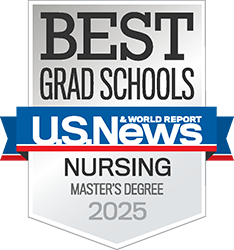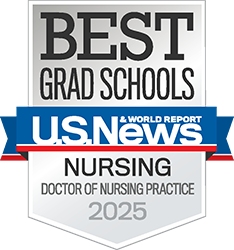HIV, Type 2 diabetes, and bones Brady explores bone health in people with both diseases

HIV and Type 2 diabetes both affect bones but in different ways. Cizik School of Nursing at UTHealth Houston Assistant Professor Veronica Brady, PhD, FNP-BC, will use a new grant to study aging bone health in patients living with both.
The one-year, $40,000 pilot grant from the National Institute on Aging (NIA) will fund Brady’s latest exploration of the intersection of HIV and Type 2 diabetes in her study, “Impact of Type 2 Diabetes on Aging Among People with HIV.” She also recently received funding from the Texas Development Center for AIDS Research (TX D-CFAR) to look at glycemic outcomes among people living with both conditions.
“Bones naturally weaken as a part of aging, and HIV seems to accelerate that process. By contrast, Type 2 diabetes reduces or slows down bone turnover, mostly by decreasing bone formation. Metabolic changes due to Type 2 diabetes are thought to cause this change, which increases the risk of fracture,” Brady explained. “In short, we think HIV potentially makes the bone age faster and makes it easily breakable, and we don’t really know if the bones in people who have Type 2 diabetes are stronger than those with HIV.”
To help answer such questions, Brady and her team will take the novel approach of studying not only bone mineral density (BMD) but trabecular bone scores (TBS) to assess bone health. TBS involves using computer analysis of dual-energy X-ray absorptiometry images of the spine to assess the core tensile strength of bone microarchitecture.
“To our knowledge, this will be the first study that will use both types of bone assessments to evaluate skeletal aging in people with both HIV and Type 2 diabetes,” Brady said.
For the study, the team will recruit 90 patients over the age of 50 from UT Physicians practices – 30 who have HIV, 30 who have HIV and Type 2 diabetes, and 30 who have neither. In addition to comparing BMD and TBS, the team will review the patients’ past blood tests for routine biomarkers of bone health.
Brady applied for the grant through the HIV and Aging Research Consortium, which is a partnership comprising multiple sites of CFARs, the Claude D. Pepper Older Americans Independence Center, Evelyn F. McKnight Brain Institute, and Nathan Shock Center of Excellence. Her pilot is funded by a subaward of an NIH-funded grant to the University of Washington.
Serving as mentors for Brady’s grant are Cizik School of Nursing Dean Diane Santa Maria, DrPH, MSN, ACRN, PHNA-BC, FAAN, and Professor Nahid Rainon, MD, DrPH, AGSF, of McGovern Medical School at UTHealth Houston. Co-investigators include McGovern Medical School Professor Robin Hardwicke, PhD, RN, and Nadia Salas, DNP, GNP, of UT Physicians.



